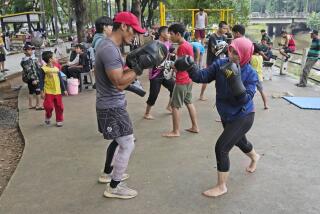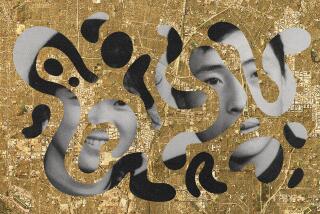Workshop Focuses on Abuse in Asian Homes
A group of domestic violence experts gathered Thursday night at Cal State Northridge to explore the unique cultural and language barriers that often prevent Asian and Pacific Islander victims from seeking help.
About 50 people attended the Behind Closed Doors workshop to learn about domestic violence in the Asian and Pacific Islander community and what can be done to help victims.
“I think domestic violence in the Asian community is done behind closed doors,” said Stella Carlos, Asian Pacific program developer of the Haven Hills Domestic Violence Center. “Because of the strong emphasis on family obligation, a woman would rather remain silent than bring disgrace to her family” by reporting the abuse.
As a result, victims often end up blaming themselves for the abuse, Carlos said. Language barriers are also an issue because victims who are monolingual or speak limited English may have problems communicating with police officers, lawyers or social workers.
Each year, nearly 4 million American women are battered, said Jae Levine Weiss, a crisis counselor and community outreach coordinator at Haven Hills. Weiss said domestic violence enters a relationship when a family member tries to maintain power over a partner through intimidation or physical or emotional abuse.
The cultural differences for new immigrants can contribute to the tensions, said Somsri Khalid, director of the Asian Pacific Counseling and Treatment Center of the San Fernando Valley. Khalid explained that some of the male abusers she has counseled believe that their wives have too much freedom in this country, and the abusers often see themselves as victims for being arrested.
Interracial families may also face unique problems when it comes to domestic violence, said Teresa Williams, an assistant professor in CSUN’s Asian American Studies Department. Williams recounted an interview in which a college student described how his abusive father, who is white, would call his mother, who is Vietnamese, racist names.
Estelle Chun, deputy director of the Asian Pacific American Legal Center, ended the workshop by explaining steps that victims can take to stop the abuse, such as obtaining restraining orders.
More to Read
Sign up for Essential California
The most important California stories and recommendations in your inbox every morning.
You may occasionally receive promotional content from the Los Angeles Times.










